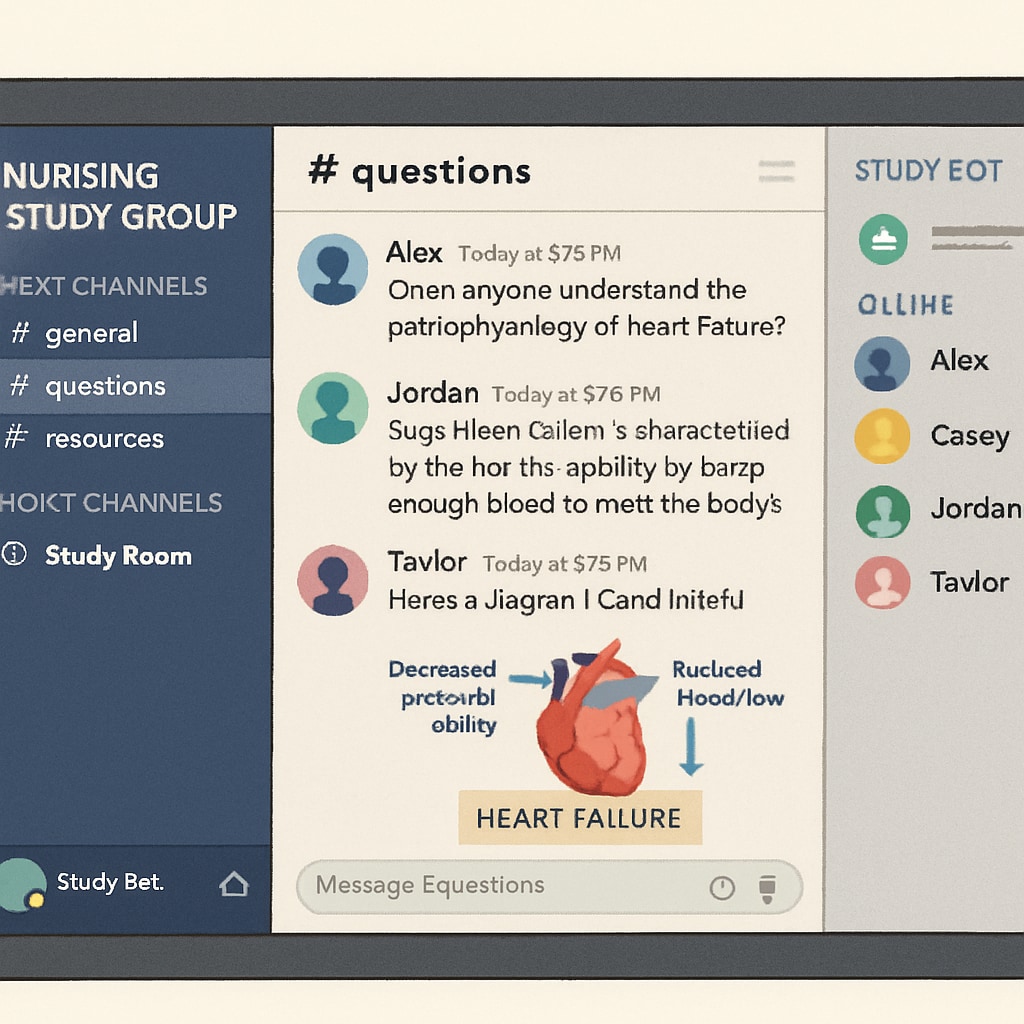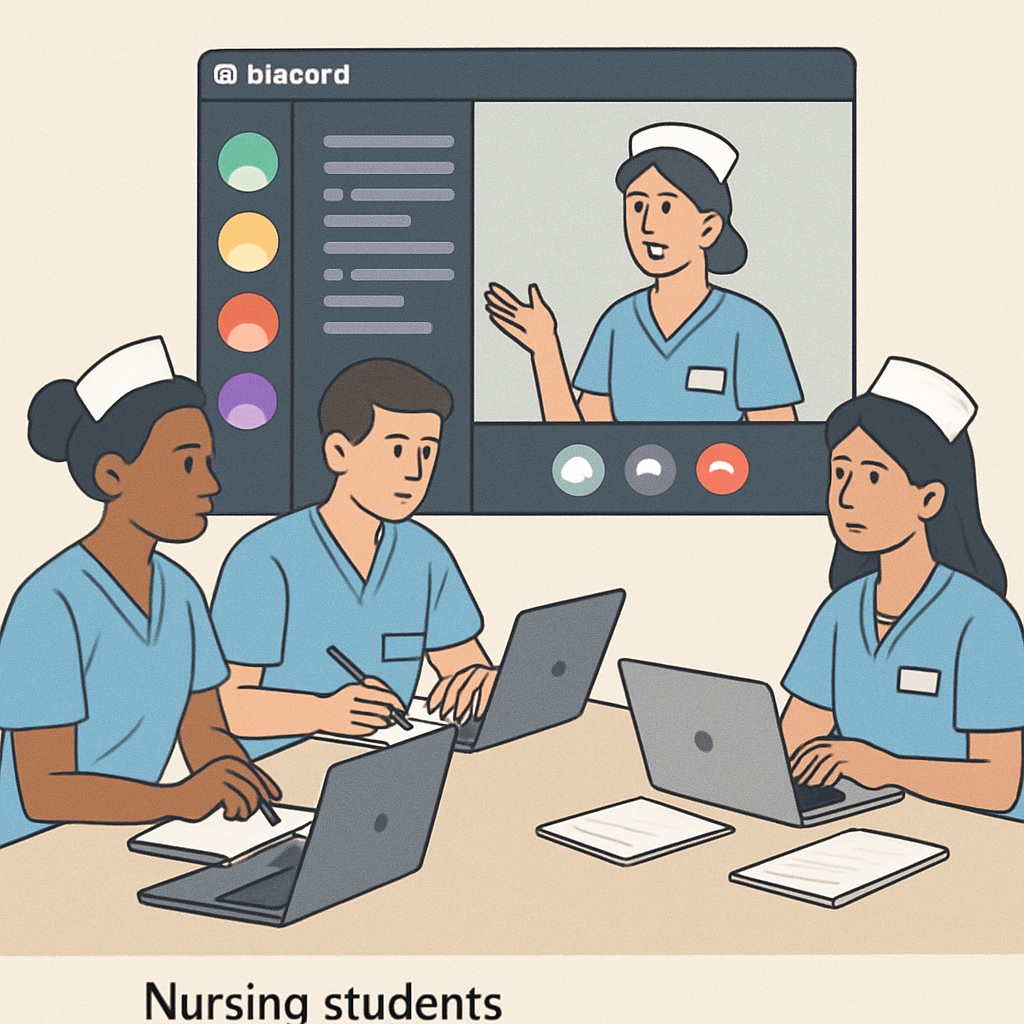In the digital age, nursing students face unique opportunities and challenges in their educational journey. Leveraging resources like “Discord study groups” and other online communities can significantly enhance their learning experience. These platforms offer collaborative environments that foster knowledge sharing, peer support, and professional growth, making them invaluable for aspiring healthcare professionals. In this article, we’ll explore how nursing students can thrive by embracing online learning communities.
Why Online Learning Communities Matter for Nursing Students
Online learning communities have become increasingly popular among nursing students due to their accessibility and collaboration-focused design. Platforms like Discord offer dedicated study groups where students can exchange ideas, discuss complex medical topics, and prepare for exams. These communities are particularly beneficial for nursing students, who often face rigorous schedules and demanding coursework.
- Peer Support: Online groups provide emotional and academic support, helping students navigate challenging subjects.
- Knowledge Sharing: Members can share study materials, notes, and resources, ensuring everyone has access to valuable information.
- Flexible Learning: Students can engage with the community at their convenience, making it ideal for those with hectic schedules.

How Discord Study Groups Enhance Nursing Education
Discord, originally designed for gamers, has evolved into a versatile platform for educational purposes. Nursing students are increasingly using Discord study groups to collaborate and engage with peers worldwide. Here are some advantages of these groups:
- Real-Time Collaboration: Students can ask questions and receive instant answers from peers or mentors.
- Organized Channels: Discord allows users to create topic-specific channels, such as pharmacology, anatomy, or clinical skills.
- Global Networking: These communities connect students from diverse backgrounds, enriching their perspectives on healthcare practices.
For example, nursing-focused Discord communities often host live Q&A sessions, share exam preparation tips, and provide access to exclusive learning resources. As a result, students can enhance their understanding of complex topics while building professional connections.

Practical Steps to Join and Thrive in Online Learning Communities
Joining online communities like Discord study groups is easy and can be highly rewarding. Here are practical steps to help nursing students get started:
- Search for Relevant Communities: Use keywords like “nursing study groups” or “healthcare Discord servers” to find active communities.
- Introduce Yourself: Once you join, introduce yourself to the group and share your learning goals.
- Engage Regularly: Participate in discussions, attend live sessions, and contribute by sharing resources or insights.
- Respect Community Rules: Follow the group’s guidelines to maintain a positive and collaborative atmosphere.
By actively engaging in these communities, nursing students can maximize their learning potential and build valuable relationships with like-minded peers.
Moving Forward in Digital Nursing Education
The integration of online learning communities into nursing education marks a significant shift in how students acquire knowledge and develop professional skills. Platforms like Discord have proven to be powerful tools for fostering collaboration and accessibility. Therefore, nursing students should embrace these communities to stay ahead in their academic and professional journey.
In an increasingly digital world, the ability to adapt and thrive in online environments is crucial. By leveraging resources such as Discord study groups, nursing students can enhance their education, gain practical insights, and prepare for successful careers in healthcare.
Readability guidance: Use short paragraphs and lists for clarity. Include transition words like “however,” “therefore,” and “for example” to maintain flow. Balance sentence length, with an average of 12–16 words per sentence.


